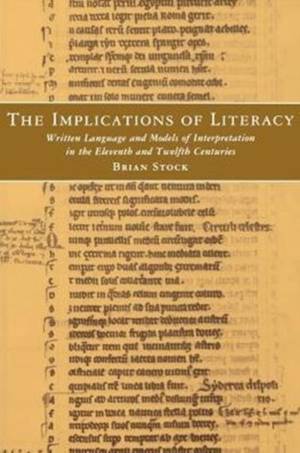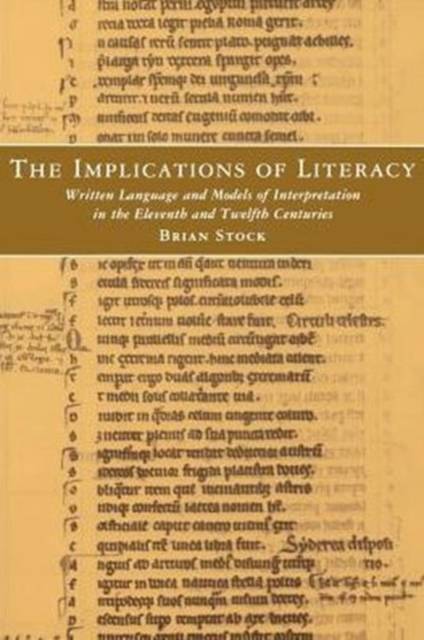
- Retrait gratuit dans votre magasin Club
- 7.000.000 titres dans notre catalogue
- Payer en toute sécurité
- Toujours un magasin près de chez vous
- Retrait gratuit dans votre magasin Club
- 7.000.0000 titres dans notre catalogue
- Payer en toute sécurité
- Toujours un magasin près de chez vous
The Implications of Literacy
Written Language and Models of Interpretation in the 11th and 12th Centuries
Brian Stock
Livre broché | Anglais
133,95 €
+ 267 points
Description
This book explores the influence of literacy on eleventh and twelfth-century life and though on social organization, on the criticism of ritual and symbol, on the rise of empirical attitudes, on the relationship between language and reality, and on the broad interaction between ideas and society.
Medieval and early modern literacy, Brian Stock argues, did not simply supersede oral discourse but created a new type of interdependence between the oral and the written. If, on the surface, medieval culture was largely oral, texts nonetheless emerged as a reference system both for everyday activities and for giving shape to larger vehicles of interpretation. Even when texts were not actually present, people often acted and behaved as if they were. The book uses methods derived from anthropology, from literary theory, and from historical research, and is divided into five chapters. The first treats the growth and shape of medieval literacy itself. Theo other four look afresh at some of the period's major issues--heresy, reform, the Eucharistic controversy, the thought of Anselm, Abelard, and St. Bernard, together with the interpretation of contemporary experience--in the light of literacy's development. The study concludes that written language was the chief integrating instrument for diverse cultural achievements.Spécifications
Parties prenantes
- Auteur(s) :
- Editeur:
Contenu
- Nombre de pages :
- 616
- Langue:
- Anglais
Caractéristiques
- EAN:
- 9780691102276
- Date de parution :
- 21-01-87
- Format:
- Livre broché
- Format numérique:
- Trade paperback (VS)
- Dimensions :
- 156 mm x 235 mm
- Poids :
- 861 g

Les avis
Nous publions uniquement les avis qui respectent les conditions requises. Consultez nos conditions pour les avis.






